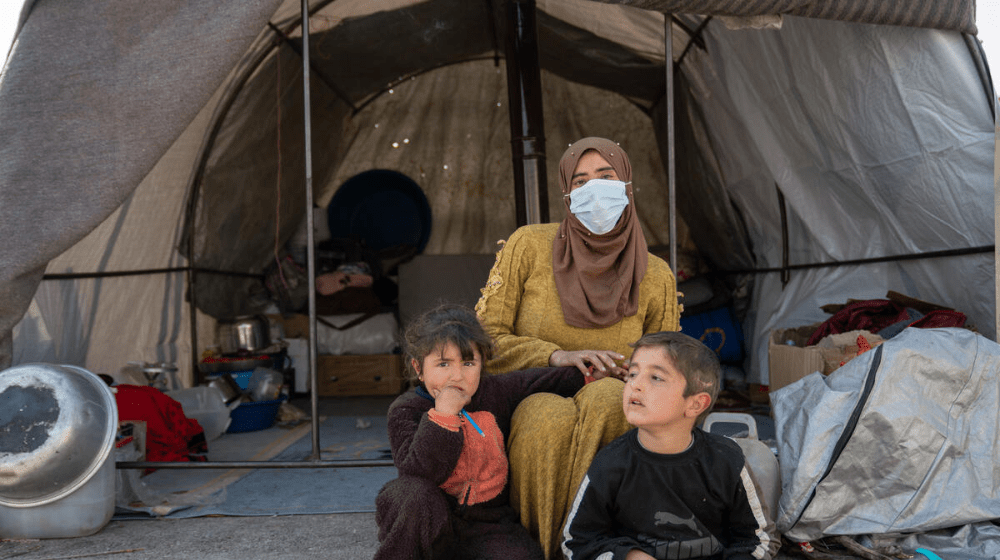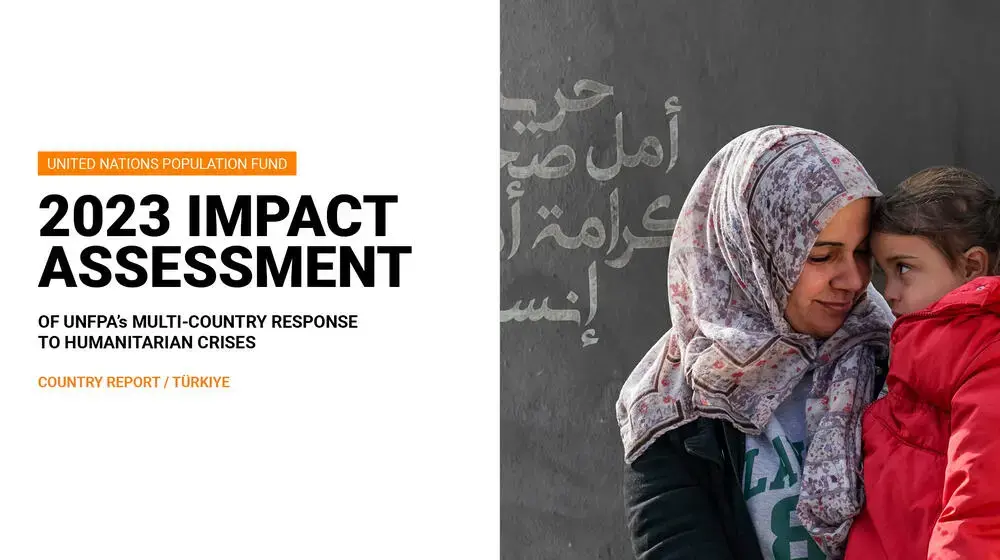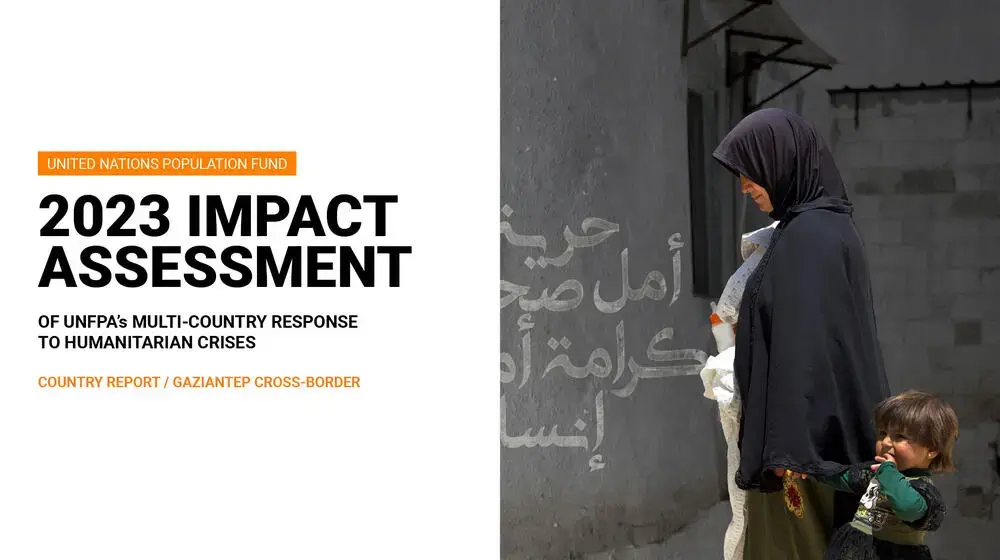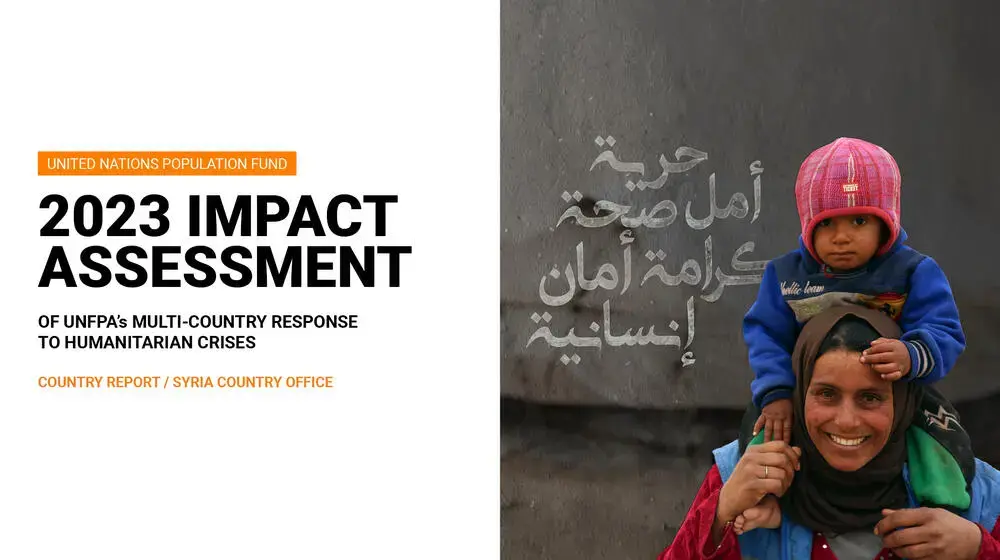SYRIA - “After the earthquake, every sound frightens me,” says Mariam, one of the many thousands of women and girls who have been displaced by the recent earthquake in Syria “I will never forget that day — ever.”
Three weeks after a magnitude 7.8 earthquake that struck Syria and Türkiye, such is the reality for tens of thousands of women and girls in Syria who woke up to find themselves grappling with unmitigated destruction and loss of life. The earthquakes came after more than a decade of violence, displacement, and instability, which had left entire communities struggling to meet their basic needs and brought unprecedented risks of gender-based violence.
“I woke up to realise that I had lost everything in a minute – my home, my clothes, my money,” said Om Mohamed from Lattakia, one of the worst-hit governorates in Syria. “ I’m speechless. I’ve lost all hope.”
Women and girls pay the steepest price
Natural disasters such as droughts, floods, and earthquakes are gender neutral but their impacts are not. Among the millions of people who have been affected by this emergency, 44,000 women will deliver in the next three months and approximately 6,600 will experience pregnancy and childbirth-related complications. They will certainly need special attention and interventions to meet their urgent needs.
“The situation for Syrians throughout the region is worse than it has been in years,” explains UNFPA Arab States Regional Director, Laila Baker. “Mass displacement, the deepening economic crises in the region, a worsening cholera epidemic, continuing and new hostilities, and rampant violations of human rights have all converged to place lives at risk. As in all humanitarian crises, women and girls are the worst off.”
The damages that hit the health care facilities resulted in a lack of essential lifesaving obstetric and neonatal care services. This has impacted referrals for both normal and urgent deliveries, which might increase the risks of preventable maternal morbidity and mortality. Such emergencies may exacerbate the risk of complications due to premature births, abortions, and threats of miscarriages, leading to an increase in the demand for essential sexual and reproductive health services
"There are stock outs of medications for treating very basic things like the flu, much less something as complicated as having a Caesarean-section." Baker added.
In humanitarian settings, women and girls usually face heightened risks to their well-being, safety and dignity. Too often, their psychological and reproductive health and overall well-being are severely compromised in such disaster situations. Their ability to access services, critical to their health, protection and survival, is at best diminished, and at worst eroded, at a time when their needs are greatest, with devastating consequences.
Sitting exhausted in the freezing temperatures of Aleppo, Ameera said: “It is extremely cold, we need blankets, mattresses and winter clothes. We are sleeping in public parks after our home collapsed.”
Responding to the health and protection needs of women and girls
Across Syria, UNFPA and its partners are working to meet basic sexual and reproductive health needs and ensure that the minimum initial service package (MISP) - a series of crucial, lifesaving activities required to respond to the sexual and reproductive health needs of affected populations at the onset of a humanitarian crisis. for sexual and reproductive health in crisis services is available. UNFPA staff are in the field with partners to ensure timely and quality implementation of the emergency response plan as well as assess the current situation and needs.
As part of its commitment to leaving no one behind, UNFPA enhanced its outreach efforts to enhance access to critical sexual and reproductive health services in northwest Syria. Through deploying mobile clinics, health staff were able to provide essential and lifesaving services, information, and referral to people in need living in the most earthquake-affected areas. To date, 215 inter-agency reproductive health (IARH) kits have been distributed to serve more than 49,000 women. The IARH kits assemble essential medicines and health technologies, equipment, and supplies needed to implement the service objectives of the MISP during a crisis situation.
For the first time after the earthquake, Al Sheikh Maqsoud neighbourhood - an area under the control of the Government of Syria in northern Aleppo - received humanitarian support. The area is home to more than 17,000 people affected by the earthquake, more than half of whom are women. UNFPA provided women and girls with basic dignity kits that includes menstrual pads, bath soap, multiple pairs of underwear, detergent powder, sanitary napkins, a flashlight, toothpaste, a toothbrush, and a comb, kits for pregnant and breastfeeding women, sanitary napkins, and winter clothes for families all housed inside a backpack or easy-to-carry bucket. Each of these items is catered to the specific needs of women and girls.
The full scale of the damage and of the crisis is still unfolding. Already reeling from almost 12 years of war, the earthquake hit at a time when humanitarian needs in Syria are at their highest since the conflict began. UNFPA is urgently appealing for $24.8 million in fast, flexible and sustained funding to deliver assistance to millions of people in dire need in Syria.
*Names changed for privacy and protection.





